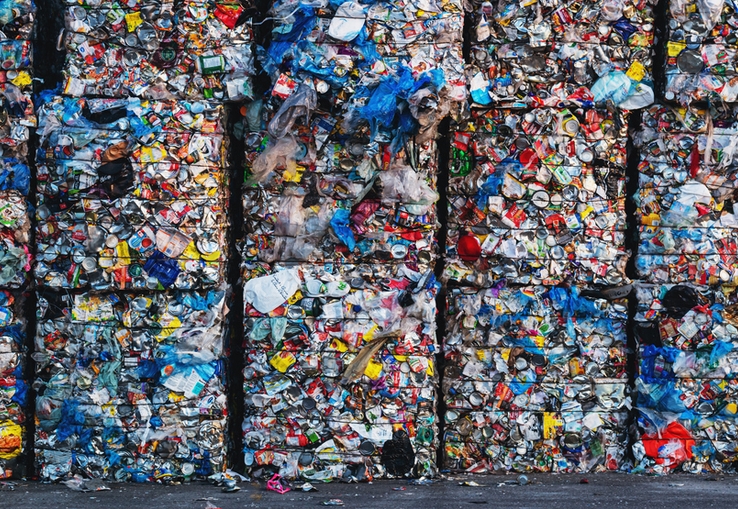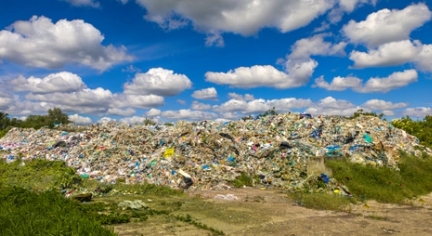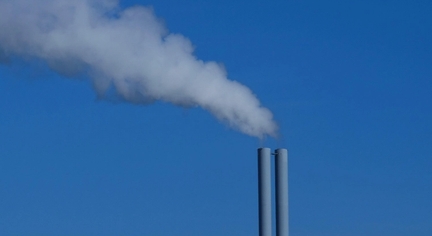
Den europeiske plastgjenvinningsindustrien står i dag overfor betydelige utfordringer. Økte geopolitiske spenninger, høye energikostnader og sterk konkurranse fra billig importert plast, både jomfruelig og lavkvalitets resirkulert, har presset mange gjenvinnere til å redusere produksjonen eller stenge fabrikker.
I et brev til EU-kommisjonen etterlyser Østerrike, Belgia, Frankrike, Luxembourg, Spania og Nederland akutte tiltak for å styrke sektoren.
Landene understreker at den kommende Circular Economy Act (CEA) blir avgjørende for å sikre like konkurransevilkår, skape etterspørsel etter sirkulære materialer og redusere avhengigheten av jomfruelig plast.
De ber EU-kommisjonen om være raske til å implementere eksisterende regelverk, som viktige artikler i PPWR og SUP-direktivet, og til å utvikle tydelige økodesignkrav for både jomfruelige og resirkulerte plastmaterialer.
Obligatoriske minimumskrav for resirkulert innhold og etablering av EU-omfattende end-of-waste-kriterier trekkes fram som viktige grep for å styrke markedet for sekundære råvarer.
Et annet hovedpunkt er behovet for å beskytte europeiske produsenter mot urettferdig global konkurranse. Landene ber EU-kommisjonen bruke tilgjengelige handelspolitiske virkemidler, inkludert antidumpingtiltak, for å motvirke import som undergraver europeiske aktører. Samtidig peker de på at høye energipriser gjør situasjonen ekstra krevende for gjenvinnere, og at innsatsen for å redusere kostnadene må fortsette.
De seks landene understreker også at det trengs økonomisk større for å lykkes med den sirkulære omstillingen. De ber om at statsstøtteregler, offentlige anskaffelser og programmer som LIFE i større grad innrettes for å fremme sirkulære forretningsmodeller. Dette mener de trengs for at europeisk næringsliv skal bli mer bærekraftig, og for å beskytte miljø og folkehelse best mulig.
Les felleserklæringen her:
Joint Statement on the necessity of measures supporting the plastics recycling sector
Supported by Austria, Belgium, France, Luxembourg, Spain and the Netherlands
European industries are facing growing geopolitical tensions, low economic productivity growth, high energy prices, and unfair global competition. Specifically for the plastics, and mainly recycling, sector, this is exacerbated by the export of virgin materials or low-quality recycled plastics from third countries at heavily discounted prices. These challenges – coupled with the need for a healthy living environment and tackling climate change, pollution and biodiversity loss – urge the European Union (EU) to transition to a circular economy. Continuing the circular transition is vital for our strategic autonomy and ensuring a future-proof economy.
However, in recent years, the circular plastics industry, and mainly recyclers, in Europe has been facing a challenging situation. As a result, several European producers which have invested in the sector’s shift towards circularity and plastic recyclers have been forced to reduce production or close factories.
The upcoming Circular Economy Act (CEA) will play a crucial role in enhancing Europe’s competitiveness and supporting recyclers in Europe, by strengthening the circular transition. To alleviate the current economic situation of recyclers and support a circular plastics sector, the CEA should be complemented by short- and medium-term actions.
In the aim of ending plastic pollution, we should also stress the importance of reducing production and consumption of virgin plastics. That is why the proposed measures go hand in hand with our continued commitment to reach an agreement on an effective international legally binding treaty to end plastic pollution covering the full life cycle of plastics.
We, the above-mentioned Member States, fully support the recent statement by the European Commission in the Environment Council to adopt short-term measures to support the circular economy and recyclers, before the end of this year. We would like to call on the Commission to take the following into account when developing this package, whilst ensuring that all suggested measures are designed in line with the EU’s international obligations including relevant WTO rules. The EU should:
Europe’s future competitiveness is clean. In line with the Letta and Draghi reports and to increase our competitiveness, our agenda should drive industries to build business models that are circular, sustainable, resilient, and future proof. Deviating from our environmental objectives will hurt companies which have already made investments, and will hurt society as a whole, both in financial terms and in public health and well-being outcomes. Furthermore, we should continue and step up our efforts to strengthen the Single Market by removing unjustified barriers, to simplify legislation if necessary and to reduce the administrative burden, while keeping the ambition and integrity of legislation intact.
In this respect, the Commission should accelerate its work on implementing important aspects of EUlegislation which contributes to tackling unfair competition and to level the playing field. This requires urgent implementation of article 7(10) of the Packaging and Packaging Waste regulation (PPWR). In addition, the upcoming implementing measures under the Single Use Plastics (SUP) directive should also ensure a level playing field for European recyclers. Finally, we should accelerate the establishment of Ecodesign requirements ensuring clear and coherent requirements for virgin and circular plastics, for example trough adding polymers and plastics as a priority product group under the Ecodesign for Sustainable Products Regulation (ESPR).
Increase competitiveness by strategic reuse of products and materials. Building on a stable legislative environment we should reuse products and materials which we already have and prevent that (critical) raw materials on which we are dependent are discarded or lost. Hence, the EU should further explore, develop and accelerate targeted policy measures to ensure a steady and substantial demand for circular products and materials, for example through the upcoming Industrial Accelerator Act and Circular Economy Act, and other relevant upcoming initiatives. The EU should introduce mandatory minimum recycled feedstock content. Additionally, the EU should take the necessary measures to increase the availability of feedstock, taking into account the efficiency of conversion of feedstock. he establishment of EU end-of-waste criteria will contribute to facilitate the single market for secondary raw materials and make the EU plastic recycling industry more competitive.
Protect EU companies against unfair trade practices. It is essential that European circular solutions and innovative products can compete on a global level playing field. Additional to accelerating the implementation of article 7(10) under the PPWR and ensuring fair competition in the PET industry under the SUPD as mentioned above, we urge the Commission to address the lack of a global level playing field in upcoming and future legislation as well as by making full use of its Trade Defence Toolbox, including anti-dumping measures, in accordance with our international obligations.
Since high energy costs in Europe create a significant lack of global level playing field and are a big challenge for European recyclers, continuing our efforts on bringing down energy prices for companies is crucial.
Integrate circularity in relevant (upcoming) instruments. This includes taking circularity into account when reviewing the state aid frameworks, mainly the General Block Exemption Regulation (GBER) to develop a proportionate state aid framework and unlock financing for sustainable materials use. Also, circularity should be incorporated in the review of the public procurement regulation.
Deliver on our ambitions through supporting measures. Supporting instruments should also be adapted to support the circular economy and the circular plastics (recycling) industry. This requires stronger financial support for circular business cases, e.g. within the current MFF through the LIFEprogramme, the development of Transregional Circularity Hubs, and by ensuring that consumers and recyclers have access to clear information about the contents and environmental impacts of their products.
As Member States, we will continue to support the European Commission and work towards a circular economy which ensures that our businesses prosper, makes Europe more independent and protects our environment and public health.
Relaterte nyheter

Slik kan sirkulærøkonomi kutte klimautslipp
Det europeiske miljøbyrå (EEA) konkluderer at sirkulærøkonomi kan kutte en tredjedel av de globale klimautslippene.

EUs deponier er tikkende miljøbomber
Til tross for over 20 år med strengt regelverk er Europa fullt av gjemte, glemte og ukontrollerte deponier.

– CCS på avfallsforbrenning er en «no brainer»
Klima- og miljøministeren slår fast at karbonfangst må til for å nå klimamålene. Det ligger på politikerne å få fart på CCS-satsingen.
